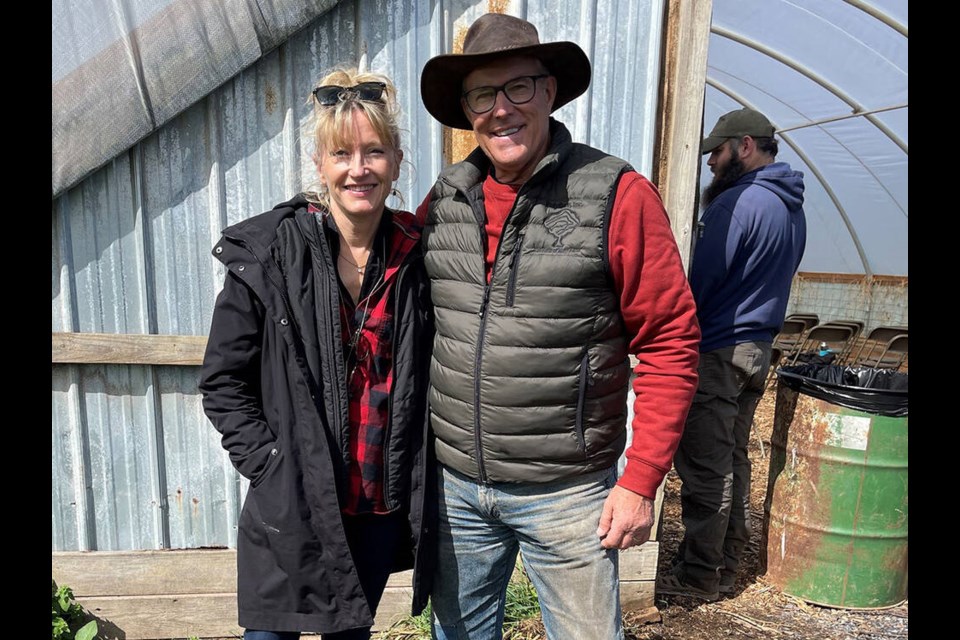Two weeks ago, I left week-old chicks and flats of seedlings under lights in the care of my husband, and made the 5,000-kilometre trip to the legendary, somewhat controversial Polyface Regenerative Farm in rural Virginia’s Shenandoah Valley.
Five days later, I returned with much food for thought, and an enhanced understanding of the business of smallhold farming.
Smallholds typically, are farms that support a single, oftentimes multi-generational family, through a mixture of both subsistence and cash crops. Increasingly, in North America, smallhold farms are coveted as much for the promise of a quiet lifestyle, as they are for potential food security. It is hard not to notice the groundswell of interest (or obsession) in smallhold farming, also known as “homesteading” on all social media channels, and in public discourse.
My anecdotal, broad-stroke research suggests that in Canada, smallholds are enjoying a comeback, driven largely by physical and mental health considerations, appreciation for all things nature-based, and concern about climate change. In America, politics may play a larger role.
I met but two other Canadians among 100 or so delegates at the Homesteaders Business Weekend, organized by the Homesteaders of America. Interestingly, all three of us were focussed on the economic viability of regenerative agricultural holdings and communities at scale.
It was at once fascinating, inspiring, exhausting, and disheartening to hear from and speak privately with trailblazing homesteaders and published authors like Joel and Daniel Salatin of Polyface Farms, Shawn and Beth Dougherty of One Cow Revolution, Farm Girl In the Making’s Anne Accetta-Scott, and free-range fibre farmer Janet Garman.
If ever there was an immersion introduction to the grit required to smallhold farm, it could be found around the huge wood-fired grill early each morning, bracing fierce icy-cold winds and rain, waiting on a hearty breakfast of Polyface pastured eggs, silvopastured pork sausage, tallow-fried potatoes, and grass fed and finished yogurt.
The Salatins have created a beautiful regenerative 500-acre production and teaching farm, with a mandate to develop emotionally, economically, environmentally enhancing agricultural enterprises, and facilitate their duplication throughout the world. Their politics are unrelatable, but their methods are sound, representing a blueprint for anyone dipping their toe or diving headlong into raising food, fibre or animal crops.
By blueprint I mean, scale-drawn, spread-sheeted, minutiae noted, step-by-step instruction for creating sustainable and profitable farm systems.
Go in with hearts and eyes wide open, but keep your wallet shut tight, was the overarching message of the weekend. Keep your burn rate low, create positive cash flow and as many recession-proof verticals as possible, using as few off-property inputs as possible, remain focussed, and scale slowly as you perfect your business model.
I’ve heard all of these ideas before, in the boardrooms and pitch meetings of my former life. In the business of smallhold farming model however, wealth creation metrics are more nuanced and consequential.
Creating physical health, mental wellness, and food security for families and communities, while regenerating a wounded planet and drawing carbon back down into the soil creates wealth beyond measure. We pay now, by investing in regenerative agriculture at whatever level we can directly, or indirectly with our shopping dollars, or we pay later in many devastating ways.
The circuitous route to the Shenandoah Valley wasn’t easy, but it was worth it. I am that much closer to understanding what the regenerative agricultural community or “agri-hood” of the future might look like, and how we might get there.
It won’t be what I initially thought it might be, but certainly it can be, and that’s very good news.
Laura Marie Neubert is a West Vancouver-based urban permaculture designer. Follow her on Instagram @upfrontandbeautiful, learn more about permaculture by visiting her Upfront & Beautiful website or email your questions to her here.




